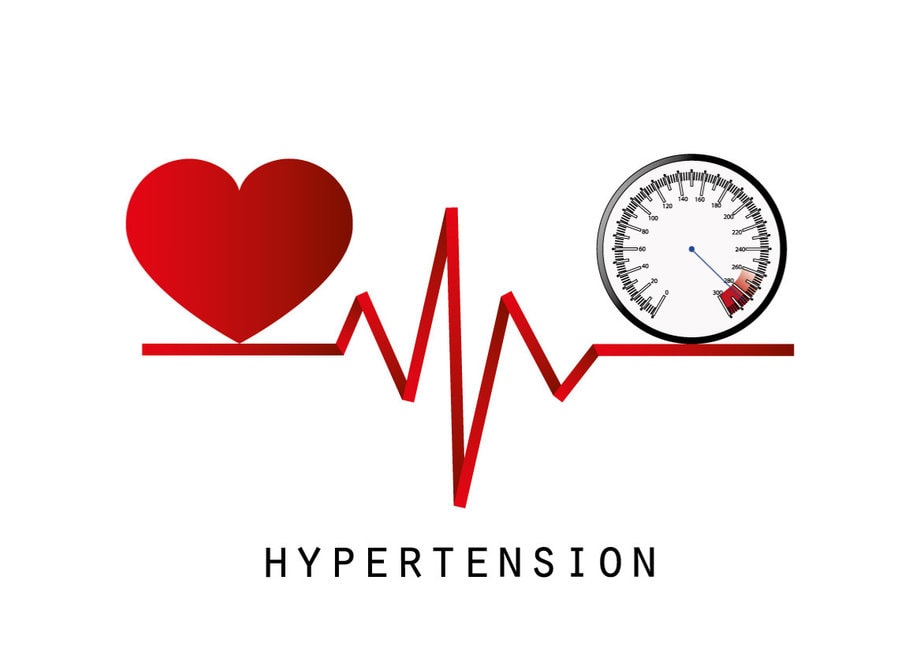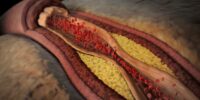What Is Hypertension And Its Causes?

Hypertension, also known as high blood pressure, is a prevalent medical condition that affects a substantial number of individuals worldwide. This article aims to provide a comprehensive understanding of hypertension and its causes.
Firstly, it explores the concept of blood pressure, defining it as the force exerted by circulating blood against the walls of blood vessels.
The primary causes of hypertension are examined, including factors such as genetic predisposition, age, and lifestyle choices. Additionally, secondary causes, such as underlying medical conditions, are discussed.
The article also delves into the risk factors associated with developing hypertension, emphasizing the importance of early identification and management. Furthermore, it explores the potential complications that may arise from uncontrolled hypertension, highlighting the need for prompt diagnosis and monitoring.
Finally, the article addresses both lifestyle changes and medical treatments that can be employed to manage hypertension effectively. By examining these various aspects, this article aims to provide a comprehensive overview of hypertension and its causes.
Key Takeaways
- Uncontrolled hypertension increases the risk of coronary artery disease, heart failure, and heart attacks.
- High blood pressure damages blood vessels and can cause blood clots, leading to strokes.
- Hypertension can impair kidney function, leading to kidney disease and failure.
- Regular monitoring and accurate diagnosis are important for managing high blood pressure.
Understanding Blood Pressure
Blood pressure is a physiological parameter that indicates the force exerted by blood against the walls of blood vessels. Understanding this measurement is essential for comprehending hypertension and its causes.
Blood pressure management plays a crucial role in preventing hypertension, a condition characterized by persistently elevated blood pressure levels. Hypertension is a major risk factor for cardiovascular diseases, including heart attacks and strokes. It is often referred to as the ‘silent killer’ because it usually does not present any symptoms until it reaches advanced stages.
Monitoring and controlling blood pressure levels through lifestyle modifications, such as maintaining a healthy weight, regular exercise, reducing salt intake, and avoiding excessive alcohol consumption, are key strategies for hypertension prevention. Additionally, medication may be required in some cases to effectively manage blood pressure and reduce the risk of developing hypertension.
Primary Causes of Hypertension
Elevated blood pressure can often be attributed to a combination of genetic factors, lifestyle choices, and certain medical conditions.
Dietary factors play a significant role in the development of hypertension. Consuming a diet high in sodium, saturated fats, and cholesterol can increase blood pressure levels. On the other hand, a diet rich in fruits, vegetables, whole grains, and low-fat dairy products has been associated with lower blood pressure.
Stress management is another crucial aspect in the prevention and management of hypertension. Chronic stress can lead to the release of stress hormones, causing blood vessels to constrict and blood pressure to rise. Implementing stress reduction techniques such as relaxation exercises, meditation, and regular physical activity can help in maintaining healthy blood pressure levels.
By addressing dietary factors and stress management, individuals can take proactive steps towards preventing and managing hypertension.
Secondary Causes of Hypertension
One contributing factor to the development of high blood pressure is the presence of certain medical conditions. These medical conditions, known as secondary causes of hypertension, are underlying conditions that can lead to elevated blood pressure levels.
Some of the most common secondary causes include:
- Kidney disease
- Hormonal disorders such as hyperthyroidism or Cushing’s syndrome
- Certain medications like nonsteroidal anti-inflammatory drugs (NSAIDs) or oral contraceptives
Other factors that can contribute to secondary hypertension include:
- Sleep apnea
- Alcohol and drug abuse
- Certain tumors
It is important to identify and address these underlying conditions in order to effectively manage and control blood pressure levels. By treating the secondary causes, it is possible to alleviate or even eliminate hypertension in some cases.
Risk Factors for Developing Hypertension
This paragraph will discuss the risk factors for developing hypertension, specifically age and gender, obesity and excess body weight, and smoking and alcohol consumption.
Age and gender play a significant role in the development of hypertension, with older individuals and males being at higher risk.
Additionally, obesity and excess body weight are strong contributors to hypertension, as they increase blood pressure and strain on the cardiovascular system.
Lastly, smoking and alcohol consumption have been linked to hypertension, as they can both elevate blood pressure and damage blood vessels.
Age and gender
Age and gender are important factors to consider when examining the prevalence and risk factors associated with hypertension. Age-related hypertension refers to the increase in blood pressure that occurs with advancing age. As individuals get older, the risk of developing hypertension significantly increases. This can be attributed to various factors such as decreased elasticity of blood vessels, increased stiffness of the arterial walls, and changes in the renin-angiotensin-aldosterone system.
Additionally, gender differences in hypertension exist, with men generally having a higher prevalence of hypertension compared to women, especially at younger ages. However, after menopause, the risk of hypertension in women increases and eventually surpasses that of men. These gender differences may be influenced by hormonal factors, genetic predisposition, and lifestyle differences.
Understanding the impact of age and gender on hypertension is crucial for effective prevention and management strategies.
Obesity and excess body weight
Obesity and excess body weight are significant contributors to the increased prevalence of high blood pressure. The link between obesity and hypertension is well-established, with studies consistently showing that overweight individuals are at a higher risk of developing high blood pressure. Excess weight places additional strain on the heart, leading to an increase in blood pressure. Furthermore, obesity is often associated with other risk factors such as insulin resistance and inflammation, which further elevate blood pressure levels.
Weight loss is crucial in managing and preventing hypertension. Even a modest reduction in body weight can lead to a significant decrease in blood pressure. Lifestyle modifications, including regular physical activity and a balanced diet, play a vital role in achieving weight loss and maintaining overall health. It is important to note that losing weight not only helps in controlling blood pressure but also reduces the risk of other health complications such as cardiovascular diseases and diabetes.
To provide a visual representation of the relationship between obesity, hypertension, and health risks, the following table is presented:
| Health Risks Associated with Obesity and Hypertension |
|---|
| Increased risk of cardiovascular diseases |
| Higher likelihood of developing type 2 diabetes |
| Greater chance of stroke and heart attack |
| Elevated risk of certain cancers |
| Increased incidence of sleep apnea |
This table aims to evoke emotion in the audience by highlighting the severe health risks that can arise from obesity and hypertension. It emphasizes the urgent need for weight loss to mitigate these risks and improve overall health.
Smoking and alcohol consumption
Moving on from the previous subtopic of obesity and excess body weight, the next significant risk factor for hypertension is smoking and alcohol consumption.
Both smoking and alcohol addiction have been strongly associated with the development and worsening of hypertension. Smoking can lead to an increase in blood pressure by constricting blood vessels and promoting the deposition of plaque in arterial walls. Additionally, the chemicals present in tobacco smoke can damage the lining of blood vessels, further exacerbating the risk of hypertension.
Similarly, excessive alcohol consumption can lead to elevated blood pressure levels. Alcohol affects the sympathetic nervous system, increasing heart rate and causing blood vessels to constrict. Furthermore, it can disrupt the balance of minerals in the body, leading to fluid retention and increased blood volume.
Addressing these modifiable risk factors through smoking cessation and alcohol moderation is crucial in the prevention and management of hypertension.
Complications Associated with Hypertension
Hypertension, if left untreated, can lead to serious health complications such as heart disease, stroke, and kidney damage. These complications arise due to the impact of hypertension on various organ systems in the body.
- Heart disease: Uncontrolled hypertension significantly increases the risk of developing coronary artery disease, heart failure, and heart attacks. The elevated blood pressure puts extra strain on the heart, causing it to work harder and leading to the thickening of the heart muscle.
- Stroke: High blood pressure damages blood vessels and can result in the formation of blood clots, which can then block the flow of blood to the brain. This interruption of blood flow can cause a stroke, leading to brain damage or even death.
- Kidney damage: Hypertension can impair the normal functioning of the kidneys, leading to kidney disease and ultimately, kidney failure. The high pressure in the blood vessels can damage the delicate filters in the kidneys, reducing their ability to remove waste and toxins from the body.
It is crucial to control hypertension through lifestyle modifications and medication to prevent these complications and maintain overall health.
Diagnosis and Monitoring of Hypertension
One important aspect of managing high blood pressure is regular monitoring and accurate diagnosis to ensure appropriate treatment.
Diagnosis of hypertension involves the measurement of blood pressure using various techniques. The most common method is the use of a sphygmomanometer, which consists of an inflatable cuff and a pressure gauge. This device is wrapped around the upper arm and inflated to temporarily occlude the brachial artery. The pressure is then slowly released, and the examiner listens for the sounds produced by blood flow through the artery using a stethoscope.
Another method of diagnosis is the use of an automated blood pressure monitor that measures blood pressure at regular intervals throughout the day. These devices are typically worn on the wrist or upper arm and provide continuous monitoring of blood pressure.
Accurate diagnosis and regular monitoring of blood pressure are crucial for effective management of hypertension.
Lifestyle Changes to Manage Hypertension
To effectively manage hypertension, implementing lifestyle changes is essential. One crucial aspect of lifestyle modification is making dietary modifications. A diet low in sodium and high in fruits, vegetables, and whole grains can help lower blood pressure. Additionally, reducing alcohol consumption and limiting the intake of saturated and trans fats can have a positive impact on hypertension management. Another key lifestyle change is stress management. Chronic stress can contribute to elevated blood pressure, so incorporating stress-reducing practices like meditation, yoga, or regular physical activity can be beneficial. By adopting these lifestyle changes, individuals with hypertension can improve their overall health and reduce the risk of complications associated with high blood pressure.
| Lifestyle Changes for Hypertension Management | ||
|---|---|---|
| Diet low in sodium and high in fruits, vegetables, and whole grains | Limit alcohol consumption | Reduce intake of saturated and trans fats |
| Incorporate stress-reducing practices such as meditation, yoga, or regular physical activity |
Medical Treatments for Hypertension
Medical treatments for hypertension include various medications and procedures that can help lower blood pressure and reduce the risk of complications.
These medical interventions are often used in combination with lifestyle changes to effectively manage hypertension.
- Medications:
- Diuretics: These medications help the body eliminate excess sodium and fluid, reducing blood volume and lowering blood pressure.
- Beta-blockers: These drugs reduce the heart’s workload by blocking the effects of adrenaline, resulting in lowered blood pressure.
- ACE inhibitors: These medications relax blood vessels, making it easier for blood to flow through them and reducing blood pressure.
- Procedures:
- Angioplasty: This procedure involves inserting a thin tube into a blocked or narrowed blood vessel and inflating a small balloon to widen it.
- Stenting: In some cases, a stent may be placed during angioplasty to help keep the blood vessel open.
- Surgery: In severe cases, surgical procedures such as bypass surgery may be necessary to improve blood flow and reduce blood pressure.
These medical treatments, when used appropriately and under the supervision of healthcare professionals, can play a crucial role in hypertension management.
Frequently Asked Questions
Can stress or anxiety cause hypertension?
Chronic stress has been associated with the development and exacerbation of hypertension. Anxiety disorders can also lead to elevated blood pressure levels. Both stress and anxiety play a role in the development of hypertension.
Is hypertension hereditary?
Hypertension can be hereditary due to genetic factors and family history. However, stress-induced hypertension and anxiety-induced hypertension are not directly inherited. Therefore, while there may be a genetic predisposition, these conditions are not solely determined by heredity.
Are there any natural remedies or alternative treatments for hypertension?
Several natural remedies and alternative treatments can be used to manage hypertension. These may include lifestyle modifications such as regular exercise, a healthy diet, stress reduction techniques, and herbal supplements like garlic and hawthorn.
Can hypertension be cured completely?
Hypertension cannot be cured completely, but it can be effectively managed through a combination of lifestyle modifications, medication adherence, and regular monitoring. Long term management is crucial to prevent complications and maintain blood pressure within a healthy range.
Is it safe to exercise if you have hypertension?
Exercise precautions should be followed by individuals with hypertension. Recommended exercises for hypertension patients include aerobic activities such as walking, swimming, and cycling, along with strength training and flexibility exercises, under the guidance of a healthcare professional.







